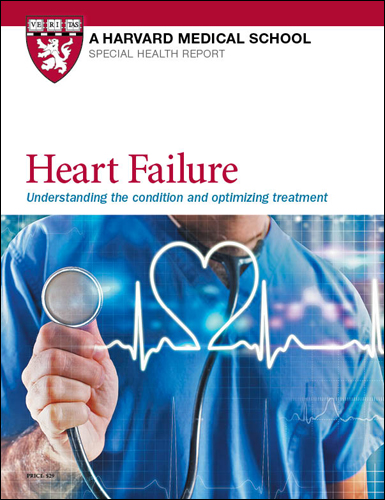How cardiology experts fight heart disease
Three Harvard doctors share what they do to lower their risk.
- Reviewed by Howard E. LeWine, MD, Chief Medical Editor, Harvard Health Publishing; Editorial Advisory Board Member, Harvard Health Publishing

Doctors advise that the best ways to lower risk for heart disease are to exercise, eat right, and adopt healthy lifestyle habits, like stress management, social engagement, and adequate sleep.
But do you ever wonder what heart specialists do to practice what they preach? We asked three Harvard doctors to share their heart-healthy habits and how they work to overcome the same challenges patients face.
Our three experts are Dr. Jona Ludmir, critical care cardiologist at Harvard's Massachusetts General Hospital; Dr. Kyle Pond, chief of cardiology at Harvard's Mount Auburn Hospital; and Dr. Stephen Juraschek, a clinical researcher of cardiovascular disease epidemiology for Harvard-affiliated Beth Israel Deaconess Medical Center.
Here's what they had to say.
Exercise
Dr. Ludmir: No matter how crazy the day gets, I squeeze in at least 15 to 20 minutes of exercise. I enjoy high-intensity interval training (HIIT) — one favorite fitness website is Fitness Blender (www.FitnessBlender.com). I can elevate my heart rate and sweat and feel like I had a great workout in only 10 minutes. Plus, the HIIT workouts focus on the four principles of fitness: aerobics, strength training, stretching, and balance. Peloton is another favorite exercise app.
Dr. Pond: People often have trouble fitting in daily exercise. What has worked for me — and I encourage my patients to follow — is having an exercise "hour" in your day. This doesn't mean that you have to exercise for the full 60 minutes. Instead, commit to whatever amount of time you realistically can do, even if it is only 30 minutes or less. Pick a time that works for you (my exercise hour is 5 a.m. to 6 a.m.).
Consistency is vital for fitness, and that begins with committing time every day. And while you want variety in your fitness, doing one thing is always better than doing nothing. Also, don't hesitate to transition away from activities because of age or health issues. I used to run marathons, but now it's easier to ride a stationary bike, lift weights, and do more stretching.
Dr. Juraschek: Like many people, I, too, find it sometimes challenging to get in the recommended 150 minutes of weekly exercise. So I've focused on being consistent with short bouts of about 15 minutes on a stationary bike, five days a week, and supplement with walking.
For instance, I try to use public transportation, which encourages me to walk more. I also like the bike as I can always watch TV or read, which helps the time pass faster and overcomes the motivational barrier to exercise.
Diet
Dr. Ludmir: My interest in nutrition was sparked by my brother-in-law, Avner. He had already adopted a plant-based diet and was an avid endurance athlete who did marathons and ultramarathons. He urged me to read The China Study, a best seller that explored the health benefits of a whole-food, plant-based diet.
After that, I jumped into similar readings and research. It became clear that a diet based on unprocessed, natural food with vegetables, fruits, whole grains, legumes, and nuts is a crucial backbone to healthy living. Two of my favorite plant-based cookbooks are The Oh She Glows Cookbook and The Forks Over Knives Cookbook. My go-to dishes include homemade lentil burgers, power bowls (rice, beans, sweet potatoes, and veggies), and breakfast smoothies (almond milk, frozen banana, spinach, chia seeds, almond butter, and oats).
Dr. Pond: I have the same cholesterol issues as my patients. While I don't follow a particular diet, I have made significant changes to my eating habits. Eating my greens is essential, and I try to have a daily salad layered with nutrients like vegetables, chickpeas, and lean meat like chicken or salmon.
Also, I used to skip breakfast, but now I begin each day with a healthy meal, such as plain yogurt with blueberries and a little granola. These small changes have improved my cholesterol numbers.
Dr. Juraschek: I follow the DASH (Dietary Approaches to Stop Hypertension) diet that is a bit modified to be higher in healthy unsaturated fat like salmon and avocado.
The DASH diet has been shown to help lower cholesterol and high blood pressure. I specifically try to make one or two vegetables a principal part of every meal and further avoid excess sodium by eating out less and staying away from canned and processed foods.
Lifestyle
Dr. Ludmir: Mental health is very much related to heart health, so anything I can do to manage stress is welcomed. One part of my stress management routine is daily prayer or meditation. It's a small action, but I can improve my mindset and be more present during the day.
Dr. Pond: I keep my mind active along with my body. For me, I read for personal interest and to manage stress. I choose topics with broad appeal that I find mentally engaging, like biographies and nonfiction. (A recent selection is a biography of famed Duke University basketball coach Mike Krzyzewski.) Reading also helps me wind down and prepare for sleep and avoid stimulating screen time in the evening, which makes falling asleep harder.
Social engagement is also essential for my well-being. I volunteer with several organizations. It allows me to not just help a cause I support, but meet other like-minded individuals, many of whom have become good friends.
Dr. Juraschek: I strive to make healthy sleep a priority as it's essential for heart health, but sleep needs differ substantially. If you are overweight or obese and snore, having a sleep study to screen for sleep apnea may be worthwhile.
I also try to avoid too much stimulation or stimulating substances, like caffeine, right before sleep and practice mindfulness or another type of destressing routine to eliminate negative thoughts and emotions that might disrupt my sleep.
Image: © LuismiCSS|/Getty Images
About the Author

Matthew Solan, Executive Editor, Harvard Men's Health Watch
About the Reviewer

Howard E. LeWine, MD, Chief Medical Editor, Harvard Health Publishing; Editorial Advisory Board Member, Harvard Health Publishing
Disclaimer:
As a service to our readers, Harvard Health Publishing provides access to our library of archived content. Please note the date of last review or update on all articles.
No content on this site, regardless of date, should ever be used as a substitute for direct medical advice from your doctor or other qualified clinician.
















